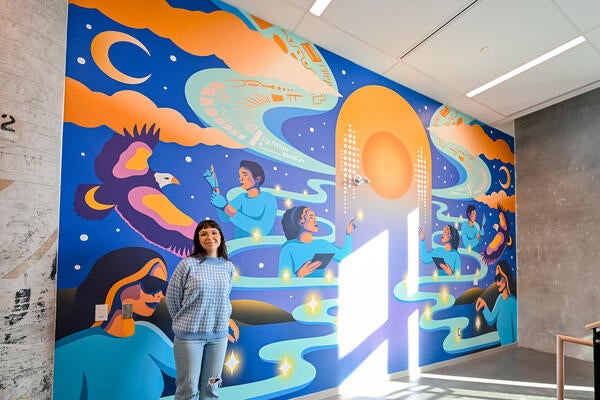VeloCity Venture Fund takes startups to the next level
Entrepreneurial students have a chance to build connections, credibility and much-needed capital through the VeloCity Venture Fund.
Entrepreneurial students have a chance to build connections, credibility and much-needed capital through the VeloCity Venture Fund.
By Jodi Szimanski Student Success Office Connections, credibility and much-needed capital — key components of start-up success — are on the line when entrepreneurial students at the University of Waterloo compete for a piece of the VeloCity Venture Fund.
Connections, credibility and much-needed capital — key components of start-up success — are on the line when entrepreneurial students at the University of Waterloo compete for a piece of the VeloCity Venture Fund.
Each term, 10 student companies selected from a pool of applicants, earn the chance to present their business idea to a panel of entrepreneurial-minded judges from the community. While the opportunity to practice their pitch and build connections is vital, the real prize is one of four $25,000 capital injections.
For some startups, the money is the boost they need to take their company to the next level.
Building on their success in the Fall 2011 VeloCity Venture Fund competition, software developer MappedIn took their case for support to CBC’s Dragons’ Den on October 31, 2012.
“The VeloCity Venture Fund allowed us to purchase equipment and ship the product,” says Hongwei Liu, chief executive officer. “More importantly, it gave us the motivation to spend a year working on MappedIn full-time.”
That work paid off: all five dragons wanted in — on camera three of them made a deal with MappedIn. Off the air, during due diligence, MappedIn decided not to go through with the deal, but they have since partnered with Esri Canada.
In addition to MappedIn, other previous winners of the VeloCity Venture Fund have found the benefits are more than financial — competing helps build connections and credibility. BufferBox has 10 devices in pilot-test locations and plans to launch 100 more in Toronto in the next year. The company also has several boxes in the Google headquarters, and is currently working with with Wal-Mart.
“On a local level, our success allowed us to secure additional grant funding, as well as raise a small angel round of funding,” said Mike McCauley, one of the three BufferBox founders. “Beyond Waterloo and Canada, VeloCity Venture Fund gave us the credibility that helped get us accepted into Y Combinator, a world-renowned startup accelerator program in Mountainview, CA.”
A donation from Ted Livingston, chief executive officer of Kik, inspired the first VeloCity Venture Fund in the spring of 2011.
“With talented minds and limited responsibilities, Waterloo students are uniquely positioned to start world-changing companies,” says Livingston, who founded Kik while living in the VeloCity student residence. “Unfortunately, few investors are willing to bet on young entrepreneurs, especially in Canada, so getting start-up funds is a huge challenge. The donation was a step towards changing that.”
Winners of the Fall 2012 VeloCity Venture Fund competition incude Kira Talent, PumpUp, Thalmic Labs and Oikoi.
The $25,000 prize will fund the hiring of more engineers and computer scientists for Kira Talent, whose product that helps employers interview applicants around the world, and Thalmic Labs, creators of new human computer interaction technology. For PumpUp, a fitness app, the money will help the team get the product to market faster through funding development and customer acquisition.
The venture fund is a great learning experience for early stage startups, who have to deliver their key message in three minutes, says VeloCity director Mike Kirkup.
“The process of ranking the teams helps to generate really important feedback for each of the teams as they push towards making their companies a reality."

Read more
Upside Robotics secures new funding to accelerate the future of sustainable farming

Read more
Many Hearts, One Mind by Indigenous artist Alanah Jewell celebrates the act of creation shared by the Land and innovators in our community

Read more
Here are the people and events behind some of this year’s most compelling Waterloo stories
The University of Waterloo acknowledges that much of our work takes place on the traditional territory of the Neutral, Anishinaabeg, and Haudenosaunee peoples. Our main campus is situated on the Haldimand Tract, the land granted to the Six Nations that includes six miles on each side of the Grand River. Our active work toward reconciliation takes place across our campuses through research, learning, teaching, and community building, and is co-ordinated within the Office of Indigenous Relations.